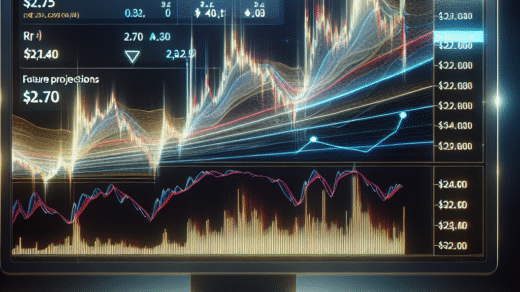In an exciting intersection of longevity research and cryptocurrency, the decentralized science (DeSci) project known as Aubrai has officially launched on Base, contributing to the innovative Bio Protocol. This initiative aims to tackle the notorious “valley of death” in science funding, a stage where promising discoveries struggle to secure the necessary funding to reach clinical application.
Understanding Decentralized Science (DeSci)
Decentralized science, or DeSci, leverages the power of blockchain technology and decentralized autonomous organizations (DAOs) to streamline the funding of scientific experiments. This groundbreaking approach enables the transparent attribution of credit for research outputs while transforming these outputs into tokenized assets. As a result, research labs can sustain their operations without being wholly dependent on philanthropy or traditional capital markets.
The Launch of AUBRAI Token
At the heart of the Aubrai initiative lies the AUBRAI token, which was launched on Bio Protocol’s Launchpad. This token represents a significant shift in how stakeholders can engage with scientific research. Token holders become permanent stakeholders in the research outputs, possessing governance rights over funding decisions and sharing in the revenues generated from commercialized discoveries.
Collaboration with Leading Experts
Aubrai is a collaborative effort developed by VitaDAO and Bio Protocol, with contributions from Aubrey de Grey’s LEV Foundation. De Grey, a renowned biomedical gerontologist, has been a pioneer in longevity research, advocating for the treatment of aging as a curable condition through his Strategies for Engineered Negligible Senescence (SENS) framework.
The Challenge of Traditional Financing
Reflecting on the challenges posed by conventional funding models, de Grey expressed concern about a chronic funding gap that leads to an over-reliance on philanthropy. “The ‘valley of death’ between discovery and clinical application is a significant barrier,” he told CoinDesk in a recent interview. This realization has propelled the movement towards alternative funding mechanisms, including DAOs, longevity-focused venture funds, and DeSci platforms that can withstand long timelines and align incentives around societal benefits.
Innovative Approach to Research and Development
Aubrai takes a unique approach by integrating de Grey’s unpublished lab data with on-chain incentives. This combination allows Aubrai access to exclusive insights that extend beyond publicly available literature, giving it a first-mover advantage in generating novel hypotheses relevant to longevity science. The project employs an intelligent agent that assimilates experimental data into a knowledge graph, formulates hypotheses, and routes them for token-holder votes to secure funding.
Transformative Impact on Scientific Research
“We are already witnessing the agent formulating intriguing new hypotheses and recommending next steps,” de Grey noted. “The synergy between agentic AI intelligence and human expertise has the potential to significantly accelerate breakthroughs in our fight against aging.” Once validated, successful experiments will be minted into intellectual property tokens, which can be licensed to pharmaceutical or biotech firms, thereby cycling revenues back to the researchers and contributors involved.
Aubrai in Action: The Robust Mouse Rejuvenation (RMR2) Study
Aubrai’s innovative system is already in practice in the Robust Mouse Rejuvenation (RMR2) study, one of the largest experiments aimed at extending mouse lifespan. The agent has provided valuable methodological insights and flagged dosing caveats that researchers had taken weeks to uncover through manual reviews. “Having the agent at our disposal has transformed our planning pipeline,” de Grey explained, particularly noting that RMR2 encompasses multiple overlapping studies.
The Future of Decentralized Science
Paul Kohlhaas, founder of Bio Protocol, views Aubrai as a pivotal development in restructuring how scientific research is organized and financed. “Just as platforms like Substack have empowered writers to monetize their content outside of traditional media, Bio’s infrastructure can enable scientists to become part of a new creator economy,” he stated.
Challenges Ahead for DeSci
While projects like Aubrai and Bio Protocol exemplify the potential of crypto capital beyond mere memecoins, the concept of tokenized intellectual property may invite regulatory scrutiny. Additionally, established pharmaceutical companies could be hesitant to adopt discoveries stemming from decentralized collectives. However, in the longevity sector, where crucial breakthroughs often falter due to disinterest from traditional capital markets, Aubrai provides an alternative pathway.
The Promise of Blockchain in Accelerating Research
If successful, Aubrai could illustrate blockchain’s ability to do more than just facilitate the next trending memecoin. It may serve as the foundational infrastructure necessary to expedite research, ultimately bringing us closer to therapies that can significantly extend the human health span. Furthermore, it could indicate that decentralized science represents a viable market alternative to the outdated funding structures that have historically constrained biomedical innovation.
In conclusion, Aubrai stands at the forefront of a scientific revolution, merging the realms of cryptocurrency and longevity research. As it navigates the challenges of decentralized funding, this innovative approach offers a promising horizon for the future of scientific inquiry and discovery.
Meta Description: “Discover how Aubrai, a decentralized science project on Base, is reshaping science funding by bridging the valley of death in longevity research with innovative blockchain solutions. Learn about the AUBRAI token, its governance, and the future of decentralized science.”







